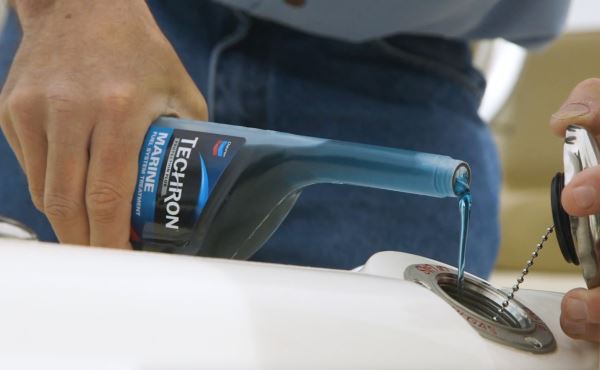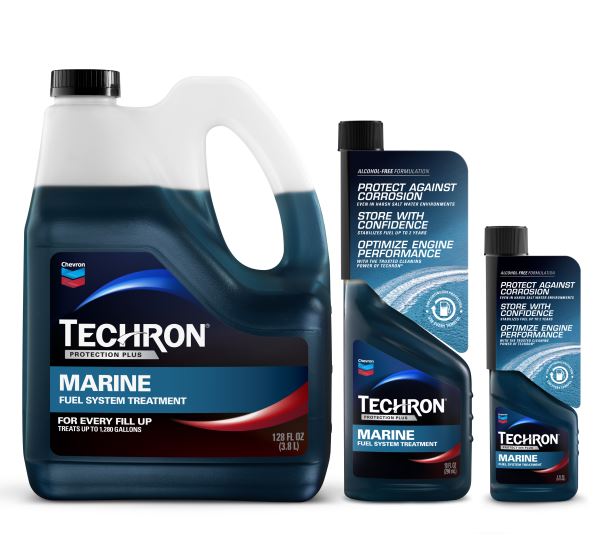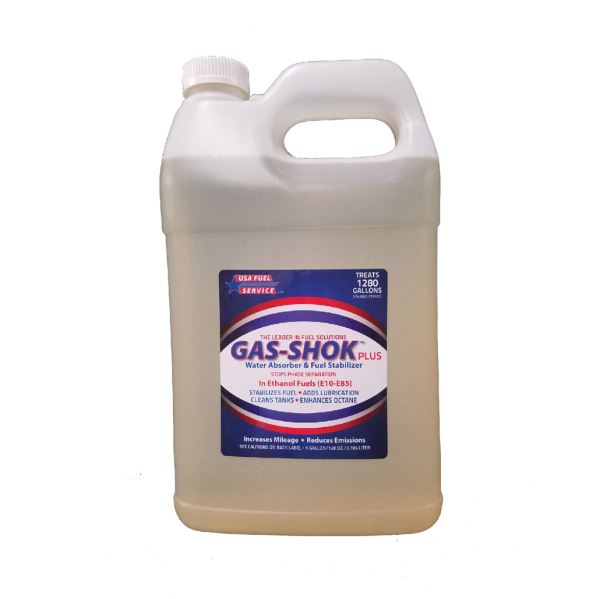 Whenever you start your boat’s engine, the fuel can cause little problems that add up quickly. Now that’s not surprising: all those intricate chemical reactions behind internal combustion can get complicated when you introduce boating to the mix. Excess moisture and long periods of disuse can compromise your fuel and damage some delicate parts. To prevent this from happening, you’ve got to take care of your fuel just as much as your hardware. Luckily, you’re not going it alone – there are a variety of fuel additives available that can keep your boat in top shape.
Whenever you start your boat’s engine, the fuel can cause little problems that add up quickly. Now that’s not surprising: all those intricate chemical reactions behind internal combustion can get complicated when you introduce boating to the mix. Excess moisture and long periods of disuse can compromise your fuel and damage some delicate parts. To prevent this from happening, you’ve got to take care of your fuel just as much as your hardware. Luckily, you’re not going it alone – there are a variety of fuel additives available that can keep your boat in top shape.
Many people use fuel additives to insulate their engine against harsh weather conditions during winter storage, but you can get so much more out of your fuel additives. They have a number of day-to-day applications as well. This is especially important information for new boaters, who may not know how to protect their watercraft from common problems that more seasoned boaters have experienced firsthand. Knowledge is key here, so we’ll help with some recommendations for what to use and how to use it.
Fuel additives are chemical compounds that mix in with gasoline or diesel, adding some helpful properties to the base fuel. These additives can slow down corrosion, optimize fuel efficiency, and reduce water damage. Informed use of these solutions can extend your boat’s lifespan and help you maximize its performance. Without them, a boat will risk a number of potential problems that can have incredibly expensive and inconvenient consequences.
 But before you buy any fuel additive, you need to determine your specific needs. There are different formulas custom-built for different engines. First and foremost, you’ll need a marine fuel additive–for example, the Techron Protection Plus Marine Fuel System Treatment. Marine additives are designed to work in environments where you’re dealing with lots of water. Water can leak into the tank, causing water buildup that damages injectors and causes rust and mineral buildup.
But before you buy any fuel additive, you need to determine your specific needs. There are different formulas custom-built for different engines. First and foremost, you’ll need a marine fuel additive–for example, the Techron Protection Plus Marine Fuel System Treatment. Marine additives are designed to work in environments where you’re dealing with lots of water. Water can leak into the tank, causing water buildup that damages injectors and causes rust and mineral buildup.
Beyond concerns about water, boaters have to deal with corrosion caused by ethanol in the boat’s fuel. Ethanol is a powerful chemical that oxygenates gasoline to help it burn completely when cycled through the engine, but there are a number of complications that can ruin a boat unless they’re treated against. For example, ethanol is highly corrosive, and it can wear down the fuel lines and the tank. Most popular additives, including the premium-grade GAS-SHOK product line, protect against ethanol by coating high-risk areas with a protective layer. While you can buy ethanol-free fuel, it’s often  expensive and hard to find, so additives are a more viable solution.
expensive and hard to find, so additives are a more viable solution.
Ethanol also attracts and binds with water, potentially leading to a devastating reaction called fuel phase separation, where the water and ethanol blend together and sink to the bottom of the tank, ruining the fuel entirely. When phase separation occurs, there’s a long and exhaustive process to repair the fuel, otherwise it’s unusable. To reduce the risk of phase separation, many marine additives have special formulas to remove the water from the tank using demulsifiers that bind to the water and help it filter out through the engine without causing phase separation. While phase separation usually takes months to occur, making it a primarily storage-centered problem, it’s a good idea to get in the habit of preventing the risk. One fuel additive with strong water-removing properties is STA-BIL 360 MARINE sold by Gold Eagle.
Each type of fuel additive will include specific instructions about how to use it for best results, so as always, follow the label and other manufacturer instructions. Some additives work passively, improving the engine over time through regular use. Other additives require you to run the engine for a few minutes to cycle the solution through and apply the beneficial properties.
Also, most additives offer a variety of features to cover all of your needs. They’re generally not compatible with one another unless explicitly stated by the manufacturer, and mixing fuel additives can potentially cause more harm than good when done without clear guidance. Manufacturers intend to provide simple, powerful solutions with clear applications. When in doubt, you can always place a call to your dealership or seek advice from trusted outlets such as boating forums and clubs where seasoned hobbyists and maintenance professionals can help you find your way.
Remember, fuel additives are a preventive measure! If you suspect that your fuel is compromised, you should clean out the tank rather than try to salvage it with any additives. When all is said and done, it’s better to reduce the risk by using the right tools in the first place. In addition, fuel additives are only one part of boat maintenance, so while you should always cover your bases with the best the boating industry can provide, always do further research to discover other ways to keep your boat running at its peak.

